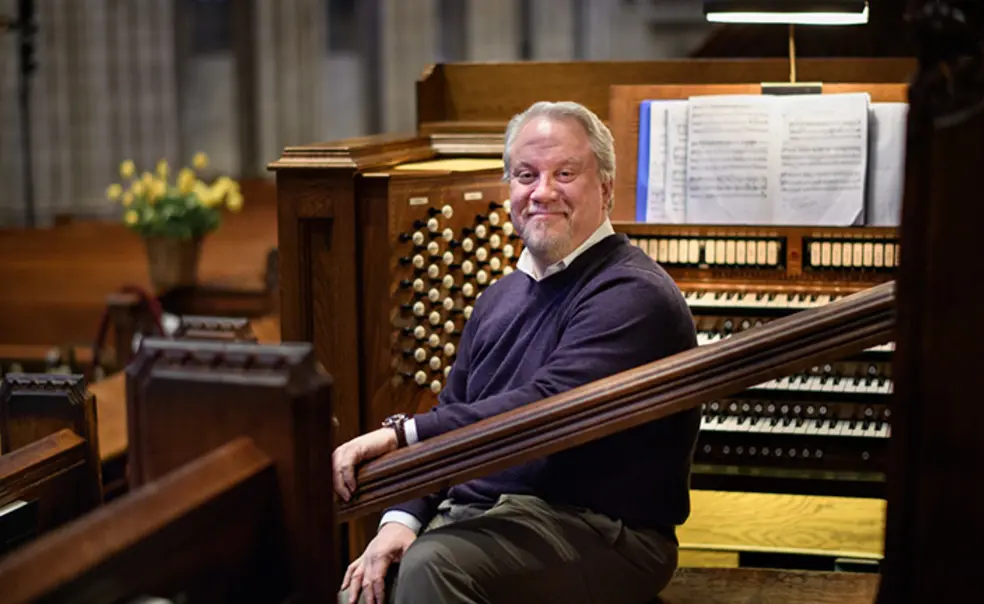Chapel Organist Traveled Across the Country for New Album
Eric Plutz’s tribute to Louis Vierne was a decade in the making
Like many musicians, organists play favorites. Carl Weinrich, the director of music at the University Chapel from 1943 to 1973, devoted much of his career to the works of Bach. Eric Plutz, who has occupied Weinrich’s seat on the chapel organ bench since 2005, enjoys compositions by the French organist Louis Vierne.
Plutz said he finds invigorating variety in Vierne’s works — and an “instantly identifiable” style. In nearly four decades as organist at Notre-Dame de Paris (he famously died at the organ, mid-concert), Vierne expanded the boundaries of organ music, drawing inspiration from new genres such as jazz.
“What I am most impressed with is his ability to excel and rise to the top of his profession having been, basically, what we would call legally blind,” Plutz said. “That just humbles me to no end.”
More than a decade ago, Plutz hatched an ambitious plan to honor Vierne by performing all six of his symphonies in sequence. Adhering to a carefully planned practice rotation, he learned the pieces over several years and continually came back to them to refresh his memory. He scheduled a series of concerts for 2020, 150 years after the organist’s birth, in Princeton and at venues around the U.S.
When the pandemic postponed nearly all of those concerts, Plutz filmed the six symphonies and offered a Vierne marathon on Oct. 8, his birthday, streamed on Facebook and YouTube. But part of the thrill of organ music is experiencing it in person, he said: “It’s that bass drum in the marching band, as it passes by, and you feel it in your chest. It’s physics. And that can’t be replicated unless you’re live, in the building.”
So Plutz rescheduled the concerts and hit the road in the fall of 2021, recording his performances as he traveled. In July, he plans to release a boxed set of the six Vierne symphonies, each played on a different organ.
Plutz said he is grateful that his role at the University Chapel provided the “elbow room” to take on his ambitious project and see it through. “Even though it was a year late, I was able to complete the project,” he said, “and hopefully [it] will speak to someone about this wonderful composer’s music.”










1 Response
Robert Buntrock *67
3 Years AgoCarl Weinrich Recordings
I’ll have to get these recordings.
We enjoyed listening to Carl Weinrich when we were on Princeton 1962-67 on what I think was the world’s fifth largest pipe organ. We also love Bach, so do any recordings exist of Carl Weinrich playing the Princeton organ?
Editor’s note: Weinrich’s playing is featured in the 1948 short film ”A Time for Bach,” commissioned by William H. Scheide ’36, as well as on several albums recorded in the 1950s, ’60s, and ’70s.